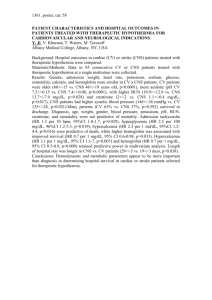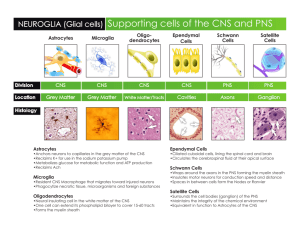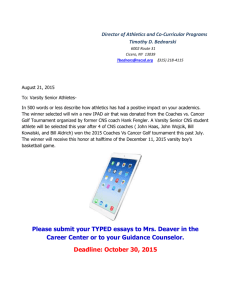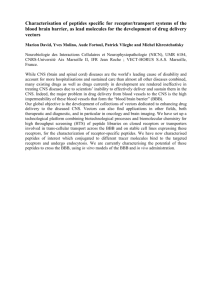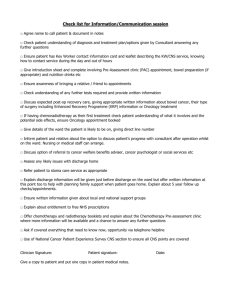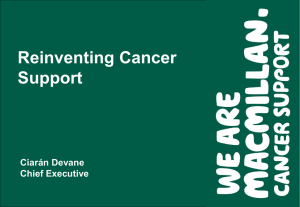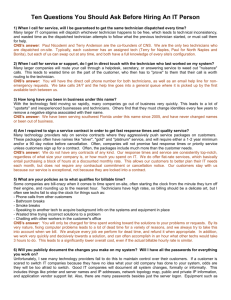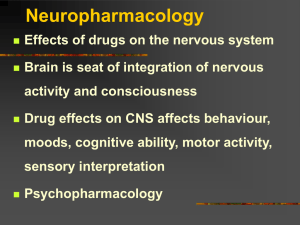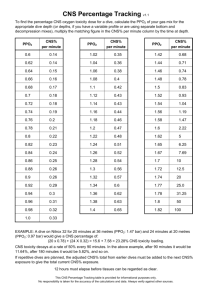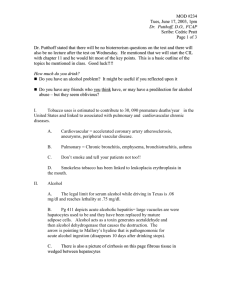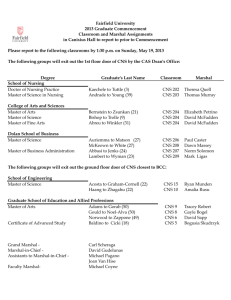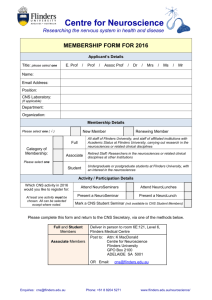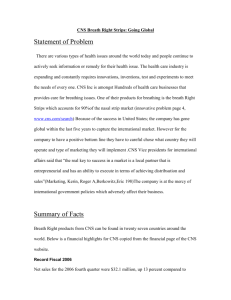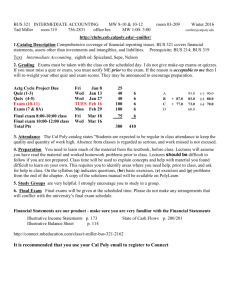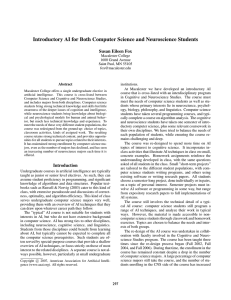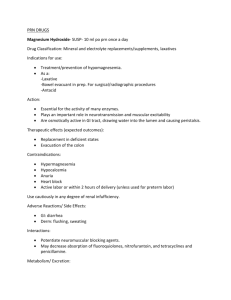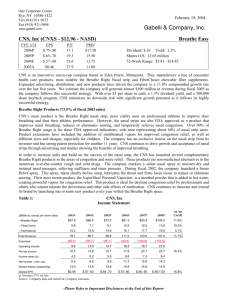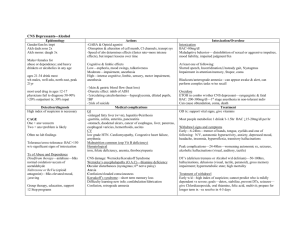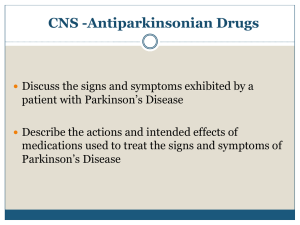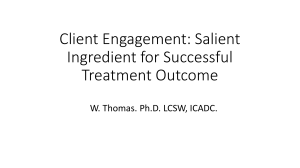Background - The Open University
advertisement
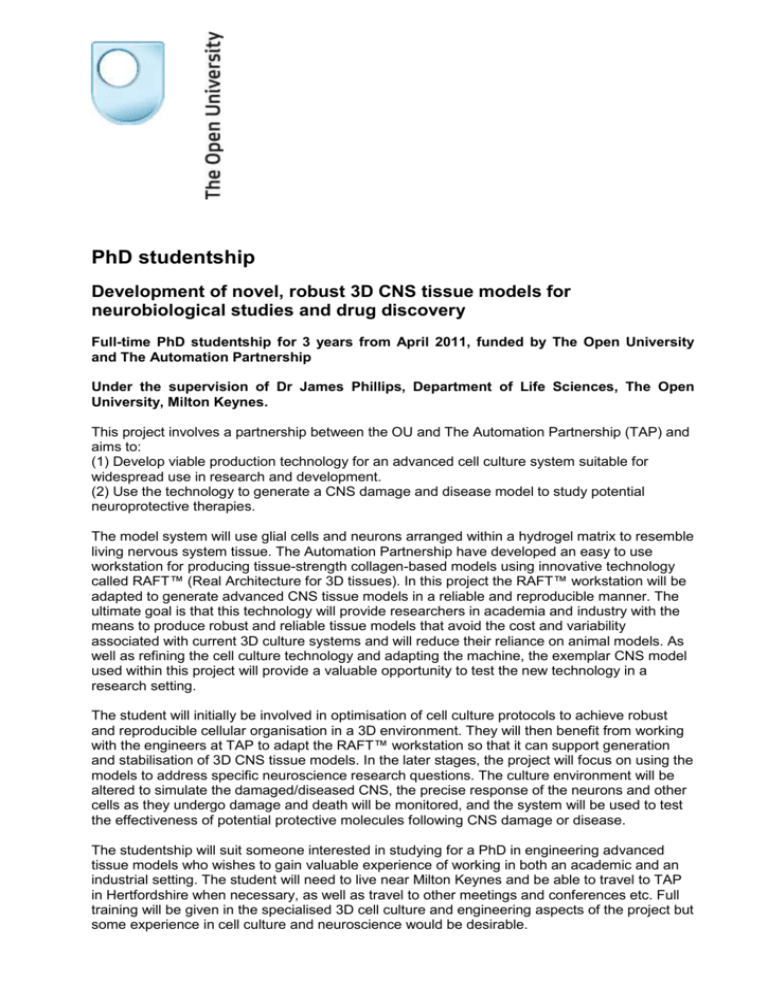
PhD studentship Development of novel, robust 3D CNS tissue models for neurobiological studies and drug discovery Full-time PhD studentship for 3 years from April 2011, funded by The Open University and The Automation Partnership Under the supervision of Dr James Phillips, Department of Life Sciences, The Open University, Milton Keynes. This project involves a partnership between the OU and The Automation Partnership (TAP) and aims to: (1) Develop viable production technology for an advanced cell culture system suitable for widespread use in research and development. (2) Use the technology to generate a CNS damage and disease model to study potential neuroprotective therapies. The model system will use glial cells and neurons arranged within a hydrogel matrix to resemble living nervous system tissue. The Automation Partnership have developed an easy to use workstation for producing tissue-strength collagen-based models using innovative technology called RAFT™ (Real Architecture for 3D tissues). In this project the RAFT™ workstation will be adapted to generate advanced CNS tissue models in a reliable and reproducible manner. The ultimate goal is that this technology will provide researchers in academia and industry with the means to produce robust and reliable tissue models that avoid the cost and variability associated with current 3D culture systems and will reduce their reliance on animal models. As well as refining the cell culture technology and adapting the machine, the exemplar CNS model used within this project will provide a valuable opportunity to test the new technology in a research setting. The student will initially be involved in optimisation of cell culture protocols to achieve robust and reproducible cellular organisation in a 3D environment. They will then benefit from working with the engineers at TAP to adapt the RAFT™ workstation so that it can support generation and stabilisation of 3D CNS tissue models. In the later stages, the project will focus on using the models to address specific neuroscience research questions. The culture environment will be altered to simulate the damaged/diseased CNS, the precise response of the neurons and other cells as they undergo damage and death will be monitored, and the system will be used to test the effectiveness of potential protective molecules following CNS damage or disease. The studentship will suit someone interested in studying for a PhD in engineering advanced tissue models who wishes to gain valuable experience of working in both an academic and an industrial setting. The student will need to live near Milton Keynes and be able to travel to TAP in Hertfordshire when necessary, as well as travel to other meetings and conferences etc. Full training will be given in the specialised 3D cell culture and engineering aspects of the project but some experience in cell culture and neuroscience would be desirable. The project will run alongside other tissue engineering, neuroscience and 3D cell culture projects in the Life Sciences Department at the Open University where there is a thriving research community working in this area. For more information about the research group at the OU and about TAP please visit our websites: http://www.open.ac.uk/science/biosci/research/phillips/ http://www.automationpartnership.com/ For more information about the project please feel free to contact Dr James Phillips (J.B.Phillips@open.ac.uk) Details of OU departmental research groups, current projects and facilities can be found at http://www.open.ac.uk/science/lifesciences/home.php For detailed information and how to apply go to http://www.open.ac.uk/research/researchdegrees/index.php, call Michelle Duke on 01908 659672 or email biologyrecruitment@open.ac.uk. Closing date: 28th February 2011.
